
1000 Cranes Take Flight
Donation protected
The 1000 Crane Project has created this funding campaign on behalf of Sara Prince, the mother of the young man whose death launched our 1000 origami cranes, facilitating healing around grief, bereavement and suicide prevention in rural Alaska.
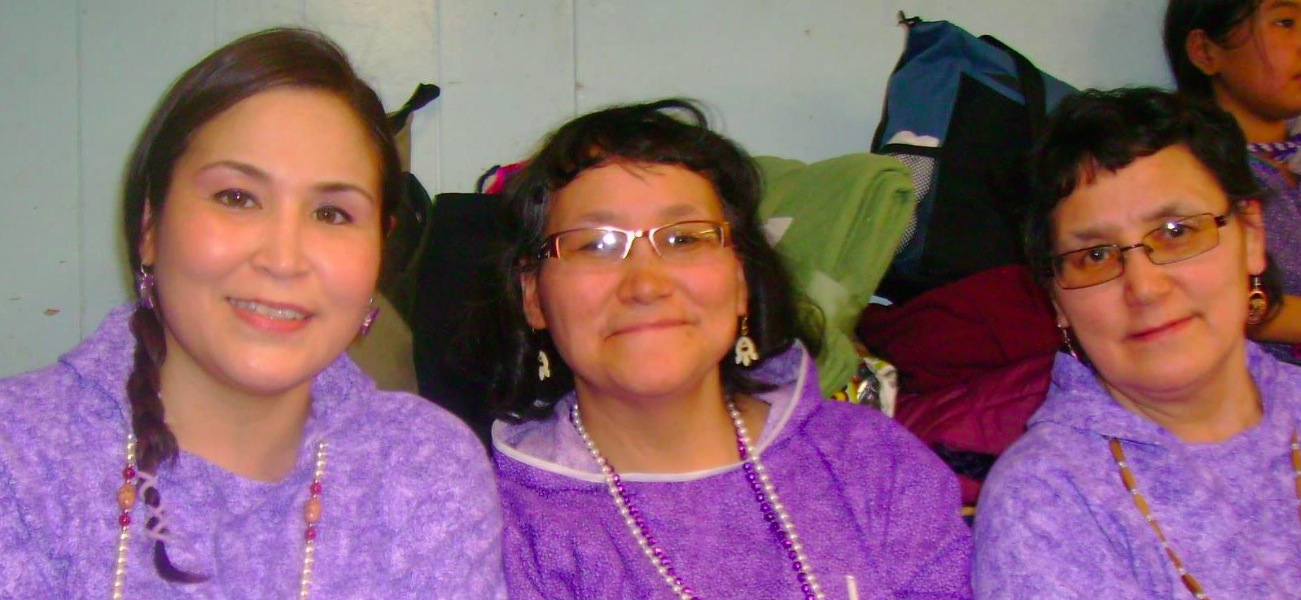
Sara Prince (pictured, center) and I have never met, but we are in regular communication, connecting over the death of her son.
(A link to our full backstory can be found here )
Four years ago, I was an artist in residence in the Bering Strait village of St. Michael when Sara's son, Johnny (Papa2, or Pa, as he was known to friends and family) drowned in the lake beside the school. I was a witness to his failed rescue. It devastated me, and in the days that followed, I engaged village children in the act of creating senbazuru, or folding 1000 origami cranes, to temper our feelings of grief and helplessness.
Reaching out through social media, we invited others to join our cause, asking participants to fold cranes/post pictures on a Facebook page (linked here) in the name of suicide prevention.
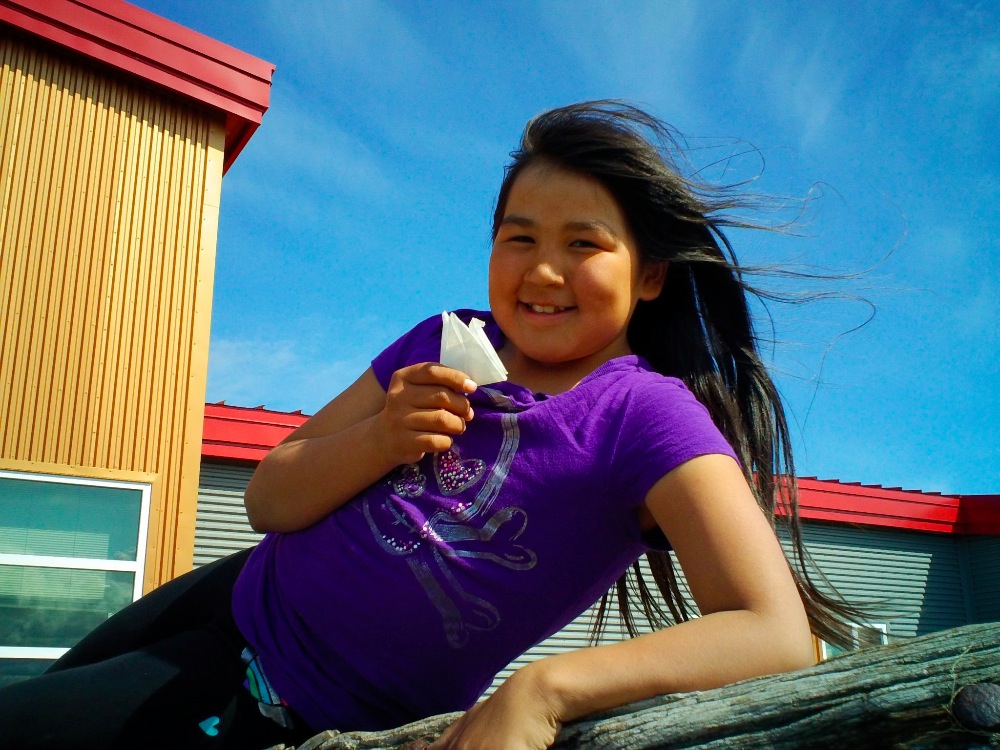
Suicide is a problem of epic proportion in rural Alaska, with certain demographics experiencing deaths from suicide at rates 12 times the national average. In the 7 months prior to my residency, St. Michael had already suffered 3 deaths from suicide, and village morale was, understandably, in a downward spiral.
By week's end, our Facebook page had gone viral, and The 1000 Cranes Project was born. I have since made a lifetime commitment to sharing our story of hope and healing, having already done so through creative partnerships with Hospice of Anchorage, the Alaska Humanities Forum, the Alaska Mental Health Trust, Alaska State Council on the Arts, Alaska Native Heritage Center, Kennedy Center Partners in Education, Rasmuson Foundation, First Alaskans, Reed College, Youth Leaders, and countless others, bringing our message to everyone from Alaska's former governor, Sean Parnell, to three years worth of grieving children at Hospice's Camp Erin.

Since that fateful summer, Johnny's mother, Sara, and I have strengthened our connection. I have since learned that Pa's Yup'ik name was Ciimuq, that he was a nine year cancer survivor, beating the osteosarcoma he was diagnosed with at age 12, that he was athletic, loved basketball, and had an enormous heart for everyone in his life.
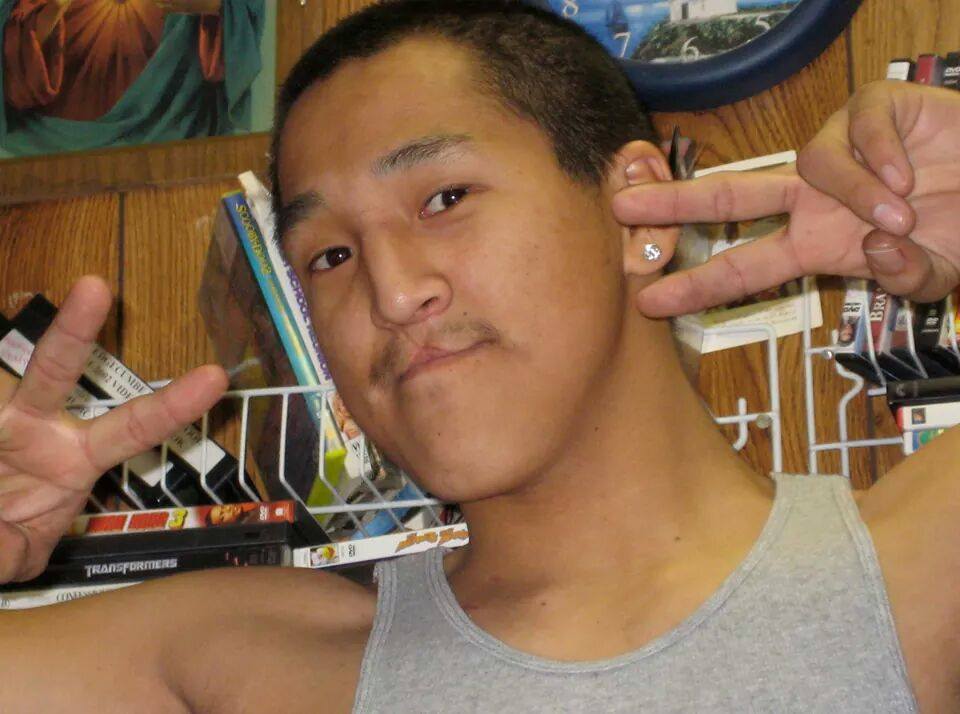
This fall, Sara received word that the Seattle Children's Hospital, instrumental in treating Pa's cancer, will be honoring her son by engraving his name on their memorial wall. Sara and her family would like to make a pilgrimage to the site in early January to visit the engraving and connect in a new and heartfelt way to the memory of her son.
I want to make that happen.
For those of you not familiar, travel costs to and from rural Alaska are beyond cost prohibitive. Air travel to Anchorage from the lower 48 is expensive, but registers less than half of the astronomical travel costs from the rural villages into Anchorage. A quick google search estimates ticketing and hotel costs for Sara and her immediate family at a cool $10,000.
If I had this money to give, I would pull it out of my own pocket, but much like the cranes, sometimes my desire to be helpful is eclipsed by the scope of my own reach.
That's where you come in.
If our story has touched you in any of its forms, please join us. Help me help Sara and move the message of our cranes from one of simple suicide prevention into the life-affirming territory of how to actively care for one another during our finite time on this planet.
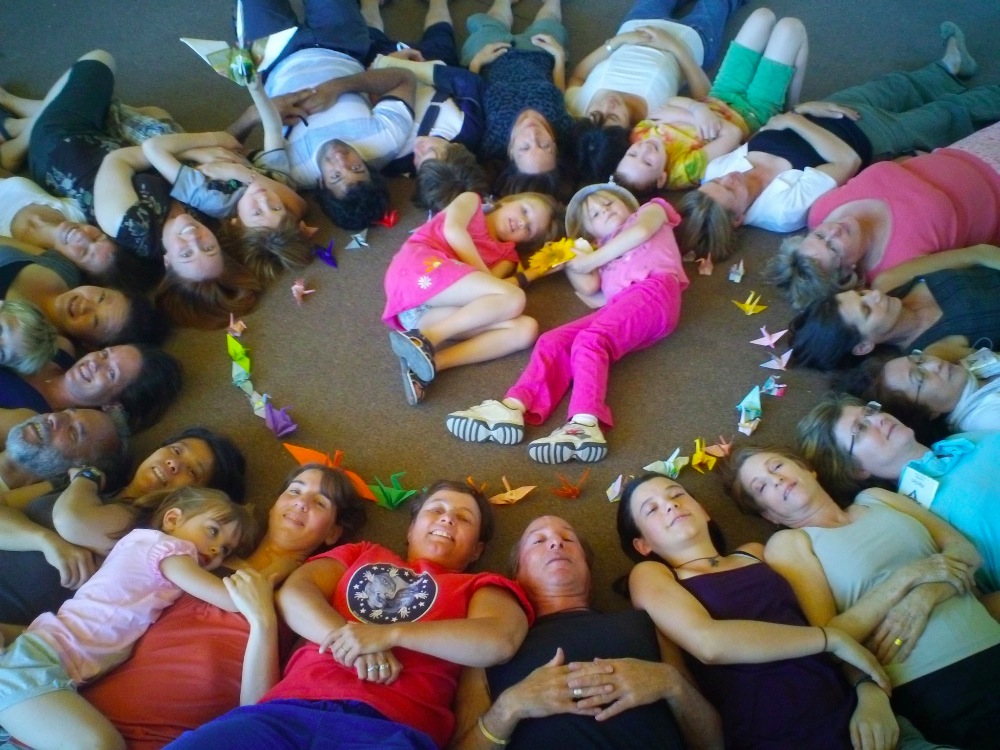
If we are able to raise this money, then I have made the commitment to driving up from my home in rural Oregon to meet Sara for the first time, gifting her and her family with our next senbazuru, currently being folded by my friends and family. Any money raised beyond the stated goal of $10,000 will be used to further the message of The 1000 Cranes Project, and a donation will be made to the American Foundation for Suicide Prevention.
Japanese legend holds that anyone who folds 1000 origami cranes receives a wish. Inspired by Johnny, I have folded 1000 cranes many times over, but I'm just now getting around to the wishing part. My first wish is to meet Sara, and give her the biggest hug.
Can you help?
If 1000 Cranes has taught me anything, it's that sometimes it takes an entire village to make a wish come true.
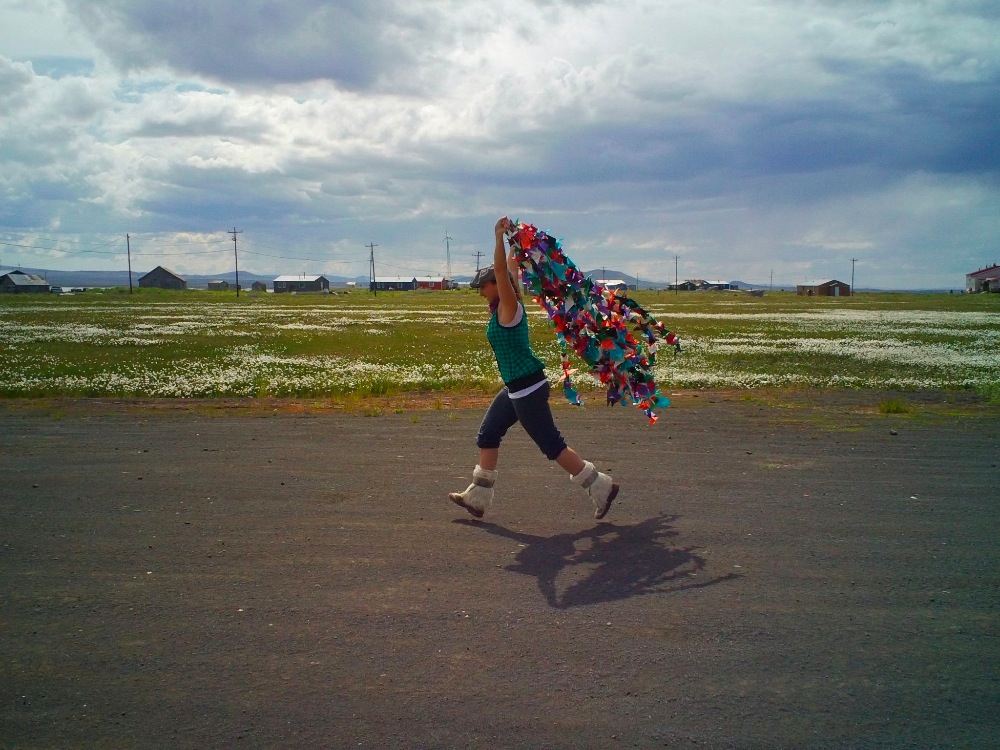

Sara Prince (pictured, center) and I have never met, but we are in regular communication, connecting over the death of her son.
(A link to our full backstory can be found here )
Four years ago, I was an artist in residence in the Bering Strait village of St. Michael when Sara's son, Johnny (Papa2, or Pa, as he was known to friends and family) drowned in the lake beside the school. I was a witness to his failed rescue. It devastated me, and in the days that followed, I engaged village children in the act of creating senbazuru, or folding 1000 origami cranes, to temper our feelings of grief and helplessness.
Reaching out through social media, we invited others to join our cause, asking participants to fold cranes/post pictures on a Facebook page (linked here) in the name of suicide prevention.

Suicide is a problem of epic proportion in rural Alaska, with certain demographics experiencing deaths from suicide at rates 12 times the national average. In the 7 months prior to my residency, St. Michael had already suffered 3 deaths from suicide, and village morale was, understandably, in a downward spiral.
By week's end, our Facebook page had gone viral, and The 1000 Cranes Project was born. I have since made a lifetime commitment to sharing our story of hope and healing, having already done so through creative partnerships with Hospice of Anchorage, the Alaska Humanities Forum, the Alaska Mental Health Trust, Alaska State Council on the Arts, Alaska Native Heritage Center, Kennedy Center Partners in Education, Rasmuson Foundation, First Alaskans, Reed College, Youth Leaders, and countless others, bringing our message to everyone from Alaska's former governor, Sean Parnell, to three years worth of grieving children at Hospice's Camp Erin.

Since that fateful summer, Johnny's mother, Sara, and I have strengthened our connection. I have since learned that Pa's Yup'ik name was Ciimuq, that he was a nine year cancer survivor, beating the osteosarcoma he was diagnosed with at age 12, that he was athletic, loved basketball, and had an enormous heart for everyone in his life.

This fall, Sara received word that the Seattle Children's Hospital, instrumental in treating Pa's cancer, will be honoring her son by engraving his name on their memorial wall. Sara and her family would like to make a pilgrimage to the site in early January to visit the engraving and connect in a new and heartfelt way to the memory of her son.
I want to make that happen.
For those of you not familiar, travel costs to and from rural Alaska are beyond cost prohibitive. Air travel to Anchorage from the lower 48 is expensive, but registers less than half of the astronomical travel costs from the rural villages into Anchorage. A quick google search estimates ticketing and hotel costs for Sara and her immediate family at a cool $10,000.
If I had this money to give, I would pull it out of my own pocket, but much like the cranes, sometimes my desire to be helpful is eclipsed by the scope of my own reach.
That's where you come in.
If our story has touched you in any of its forms, please join us. Help me help Sara and move the message of our cranes from one of simple suicide prevention into the life-affirming territory of how to actively care for one another during our finite time on this planet.

If we are able to raise this money, then I have made the commitment to driving up from my home in rural Oregon to meet Sara for the first time, gifting her and her family with our next senbazuru, currently being folded by my friends and family. Any money raised beyond the stated goal of $10,000 will be used to further the message of The 1000 Cranes Project, and a donation will be made to the American Foundation for Suicide Prevention.
Japanese legend holds that anyone who folds 1000 origami cranes receives a wish. Inspired by Johnny, I have folded 1000 cranes many times over, but I'm just now getting around to the wishing part. My first wish is to meet Sara, and give her the biggest hug.
Can you help?
If 1000 Cranes has taught me anything, it's that sometimes it takes an entire village to make a wish come true.

Organizer and beneficiary
Leslie Kimiko Ward
Organizer
Lebanon, OR
Sara Prince
Beneficiary